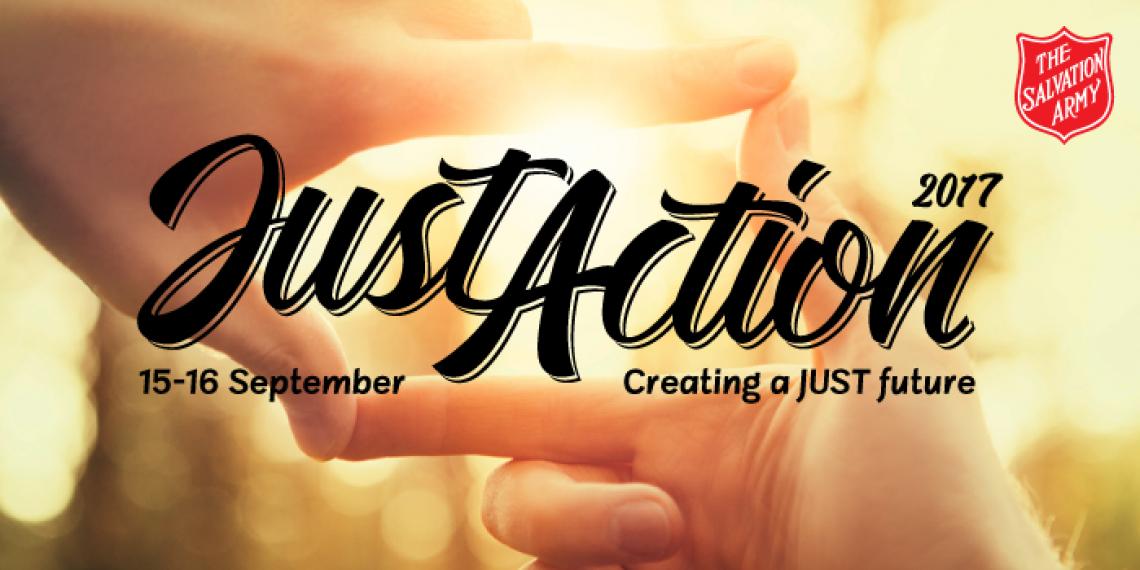You are here
What do we want for our future?

What do we want for our future?
The future of New Zealand is up for discussion at this year’s Just Action conference.
The conference, being held in Auckland from 15–16 September, is themed around building a just future—with speakers and panels discussing and debating different aspects of what a just future would look like and how to get there.
Conference organiser Ronji Tanielu, from The Salvation Army’s Social Policy and Parliamentary Unit, said the conference would be looking at the big picture, but also at practical ways to approach social justice and a just society. As New Zealand’s first social justice conference there had always been a good discussion about the issues of today at Just Action, Ronji said, but this time the focus would be on making change for the future.
‘We’re asking the speakers to reflect on that—on their values and how that shapes their own just actions. It’s big picture, but it’s also providing solutions and actions that people can use in their everyday life. We’re saying, “What can I do in my back yard in Gisborne or Hamilton, how do I take these tools and work to make a just future for all Kiwis?”’
For Auckland City Councillor Fa’anana Efeso Collins, it starts with compassion ...
‘If there’s a true poverty in this nation I think it’s that we’ve lost our sense of compassion. We’re a nation of plenty and if we were driven by compassion we’d be sharing with people.’
Efeso will be speaking about building a just community—based on his experiences as a youth worker, politician and passionate advocate for his South Auckland and Pasifika community.
Despite working for a change in society, Efeso said the start of just community begins with individuals and changing our mind-set of chasing after riches or power.
‘I think what we’re after is a change of heart. People talk about life’s rat race and I don’t know what we’re racing towards. Unless we’re racing towards fairness, love and compassion I’m not interested in the race.’
New Zealand is a land of plenty, Efeso said, but in his South Auckland community he works with people who struggle every day to make ends meet. A just community is one where we see those who are struggling as human beings, without a lens of bias, and our desire is to stand with them and help, Efeso said.
A good example of how that might work, he said, is at home with his daughter, an only child who is lavished with gifts by her extended family. Every few months, the family has an exercise where she goes through and chooses what she can to share by giving away to other kids.
‘My daughter grows up in privilege. She doesn’t have a need for food, or a bed, and she has two parents who can be at home—and today that’s privilege. When she goes to her early childhood centre a lot of those kids are hungry. She sees the kids at church who have no jacket or don’t even have stockings for their feet and she goes through her things knowing she can share.’
Raised a Christian initially in a charismatic Samoan church, before becoming a youth worker at a Baptist Church in Otara, Efeso said his faith has always been at the heart of what he does. ‘I want to get to Heaven’s door knowing I was out there on the rugby field getting dirty and struggling to make sure we made society better.’
Despite people questioning him about mixing faith and politics, Efeso said he feels his faith, his sense that God has great plans for our lives, is something valuable he brings to politics.
‘I see my faith as part of my whole person and as a good thing to bring to politics, which is essentially about power and influence. If the influence can be that we’re reintroducing a notion of compassion that’s going to lead to social conditions that help people and support them, then I want that for everyone. A decent standard of living, three meals a day, living in a warm dry home and going to school, then I feel I would have done my bit.’
Other conference speakers include economist Shamubeel Eaqub, Young New Zealander of the Year Rez Gardi, former New Plymouth Mayor Andrew Judd, and Tim Costello from World Vision Australia.
In addition to speakers putting forward ideas, there will be panel discussions and opportunities for conference goers to interact. People will have the chance to add their thoughts and responses to the ideas of the conference in an interactive art piece created during the weekend. There will also be powerful spoken word performances during the days reflecting on conference themes.
Register today | www.salvationarmy.org.nz/JustAction